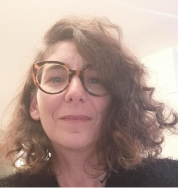This is a hybrid event. Join in person at the LCSB, or tune in remotely via Webex.
From cancer omics data to mechanistic models
Network models are a common and powerful formalism for studying cell functio and deregulation during cancer. They allow the integration of a large number of entities into a single complex network. However, the construction and the analysis of these large networks remain a challenge.
To facilitate the construction of the networks that encompass the signalling pathways deregulated in tumour cells, we rely on prior knowledge databases. We developed a tool, NeKo that builds a network from a list of genes, proteins or phosphosites and gathers the appropriate information from predefined databases. The resulting network can be seen as specific to a cell type, a cancer type, a cell line, or a patient.
These networks can then be translated into mathematical models to answer more dynamic questions related to the disease. They can recapitulate known facts about the role of mutated genes or altered gene expression, but can also suggest points of intervention. To illustrate this, I will show a model of cell invasion with an agent-based modelling approach in which each agent is a Boolean model (PhysiBoSS). The model shows the different modes of tissue invasion and predicts ways to block it.
About the speaker
Dr Laurence Calzone is a research scientist at Institut Curie and has a long experience in developing mathematical models based on nonlinear ordinary differential equations, Boolean formalism and agent-based approaches to address specific biological questions related to cancer with the aim to provide personalised treatments.
She is involved in developing methods and tools to build and integrate omics data into these models. She currently coordinates the team of Computational Systems Biology of Cancer together with Emmanuel Barillot, trying to connect machine learning approaches to mechanistic modelling.

The Causal Analysis of Biomedical Data Lecture Series is supported by the Luxembourg National Research Fund (FNR) RESCOM Program.

